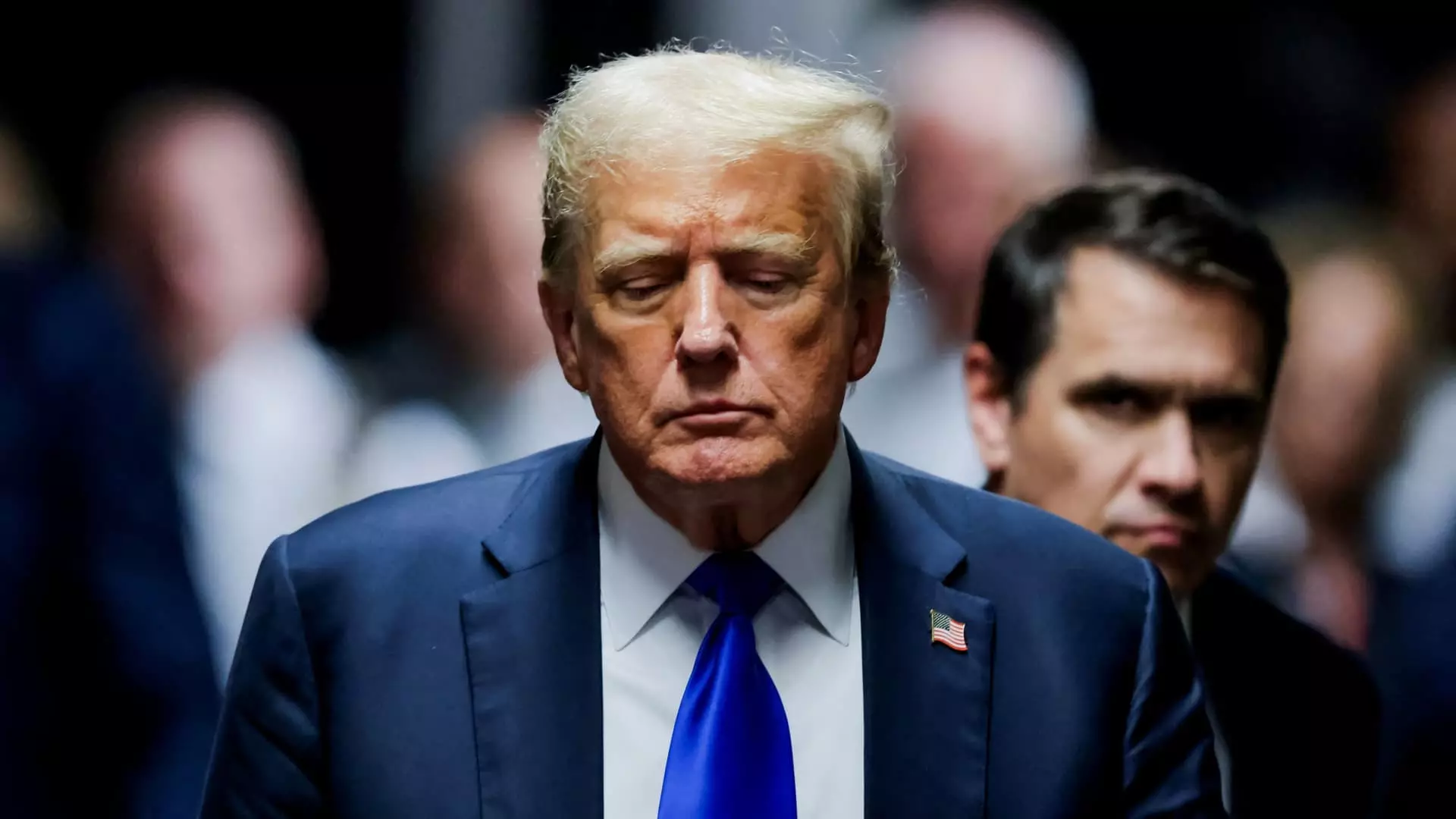The ongoing legal struggles of former President Donald Trump, particularly concerning his hush money conviction, present a complex interplay of law, politics, and public perception. The recent New York court ruling by Manhattan Supreme Court Judge Juan Merchan to uphold Trump’s criminal conviction underscores significant implications not only for Trump’s future but also for the broader American political landscape. This article explores the nuances of this case, dissecting its legal ramifications and the broader implications of prosecuting a former president.
Judge Merchan’s dismissal of Trump’s claims of presidential immunity marks a pivotal moment in a case that has drawn national attention. Trump’s legal team argued that the prosecution’s reliance on testimonies from former White House employees and other evidence warranted a dismissal of the charges. However, Merchan refuted these arguments, emphasizing that even if the evidence were perceived as part of Trump’s official duties, it did not excuse actions that amount to falsifying business records.
The judge’s assessment, encapsulated in his 41-page ruling, stresses the gravity of the actions Trump was accused of, suggesting that the severity of the evidence of guilt outweighed any potential presidential immunity associated with the conduct during his term. The ruling highlights a crucial judicial principle: that personal misconduct, even by a sitting president, does not necessarily fall under the protections generally afforded to official acts. This establishes a significant precedent that may deter future leaders from expecting absolute immunity from criminal prosecution for personal indiscretions.
At the heart of this legal saga is the $130,000 payment made by Trump’s former attorney, Michael Cohen, to adult film star Stormy Daniels just before the 2016 election. This payment, ostensibly to prevent negative publicity regarding an alleged affair, raises ethical questions about campaign financing and transparency. Critics argue that such payments compromise the integrity of political processes and accountability.
The implications of the payment extend beyond the courtroom. They invite a conversation regarding the ethical responsibilities of public officials. For many, this case serves as a litmus test not only for Trump’s accountability but also for the mechanisms in place that govern political conduct. If a president or a presidential candidate can engage in clandestine financial dealings without significant repercussions, it sets a concerning precedent that could further erode public trust in government institutions.
The response from Trump’s circle has been predictably defiant. Statements from Trump’s representatives have characterized the legal proceedings as politically motivated, framing them as an extension of a “witch hunt.” This rhetoric resonates with a significant segment of Trump’s support base, which perceives the legal challenges as part of a broader conspiracy against him.
Public opinion on Trump’s legal troubles is deeply polarized. Supporters view him as a victim of overreach by a politically hostile judiciary, while opponents argue that no one, regardless of past office, should be above the law. This division reflects broader societal fractures that extend beyond Trump himself, signaling a contentious battleground in the realm of American political discourse.
As Trump faces ongoing legal challenges, including remaining appeals against his conviction for falsifying business records, the question of sentencing hangs in the balance. Should Judge Merchan choose to impose sanctions, the ramifications could alter the landscape of American politics, especially given that Trump is a key figure in the Republican Party and is eyeing another presidential run.
The prospect of legal consequences for a former president places the judiciary at the crossroads of legality and political reality. With ongoing debates about presidential accountability and abuse of power, the case against Trump serves as a crucial indicator of how the rule of law will be upheld in the face of political pressures.
The legal battles faced by Donald Trump are more than just a reflection of one man’s actions; they are emblematic of a broader struggle with governance, ethics, and public trust in the institutions that underpin democratic systems. As the judicial proceedings unfold, they will likely continue to provoke debate and division across the political spectrum, shaping the narrative long after the gavel has fallen.



Leave a Reply